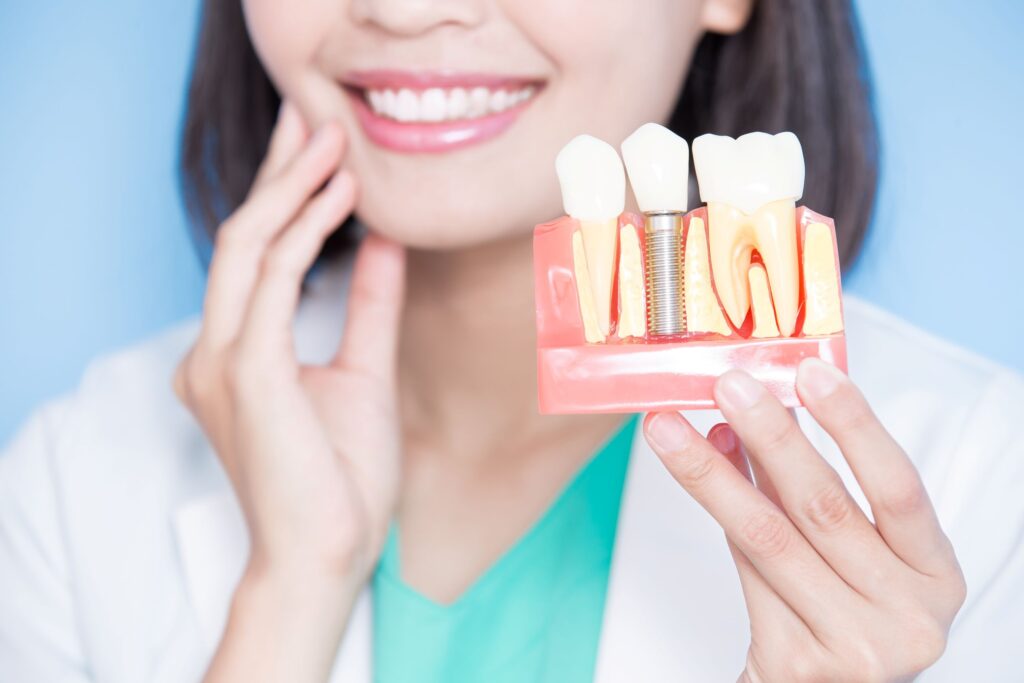
Gaps in your grin can detract from your daily quality of life because once-simple tasks like eating, speaking, and smiling confidently suddenly are much more difficult. Fortunately, your dentist can replace missing teeth with lifelike dental implants that are typically stronger and more resilient than alternative treatments.
Unlike dentures and dental bridges, implants include a titanium rod embedded directly into your jaw. However, you must follow your provider’s post-op instructions carefully to avoid harming your prosthetic. Continue reading to learn 3 things not to do after your procedure to avoid potential failure!
Tip #1: Don’t Smoke
Did you know that researchers have found that implants in smokers have about a 140% higher risk of failure than those placed in non-smokers? That’s because cigarettes and vapes contain nicotine, which is a vasoconstrictor. This toxic chemical reduces your blood oxygen levels and flow so that your body is unable to deliver essential nutrients to your teeth and gums to heal effectively.
At the same time, nicotine suppresses your immune system, so you’re less able to fight off infections, like peri-implantitis. If bacteria penetrate the connective tissues around your implant, they deteriorate and leave your restoration without a firm enough foundation not remain in place. This is the number one leading cause of failure.
Tip #2: Don’t Overexert Yourself
If you regularly exercise or engage in strenuous physical activities for work or leisure, you may need to take a short break to heal from your surgery. Your mouth must form a blood clot at the implant site to protect it, and if you’re physically active, you could injure or dislodge it, extending your recovery.
You should avoid periods of intense activities for several days to give your mouth time to recover. Anything that elevates your heart rate or blood pressure might damage your blood clot, forcing you to form a new one so you can heal effectively.
Tip #3: Don’t Eat Hard or Hot Foods
Watching what you eat after your surgery is also wise to avoid triggering your already tender gums. It’s normal to experience mild to moderate swelling and associated aches after your procedure, and eating foods that are too hot, hard, or spicy could make things worse. Usually, it’s best to stick to softer, milder foods immediately after your procedure that won’t exacerbate your condition. Popular options include mashed potatoes, applesauce, scrambled eggs, yogurt, and blended fruit smoothies.
Following your dentist’s post-op instructions is the best way to heal efficiently without developing complications after your dental implant procedure!
Meet the Author
Dr. Dina Cocco has 35+ years of experience helping families in and around Ann Arbor build happy, healthy smiles. She earned her dental degree from the University of Michigan and is an active member of several organizations, like the American Dental Association, to stay current with the latest developments in technology and techniques. She provides a comprehensive array of services to meet all your needs, including replacement teeth. She partners with the best oral surgeons and provides beautiful, long-lasting restorations to rebuild your grin. You can request an appointment on the website or call (734) 668-8636.